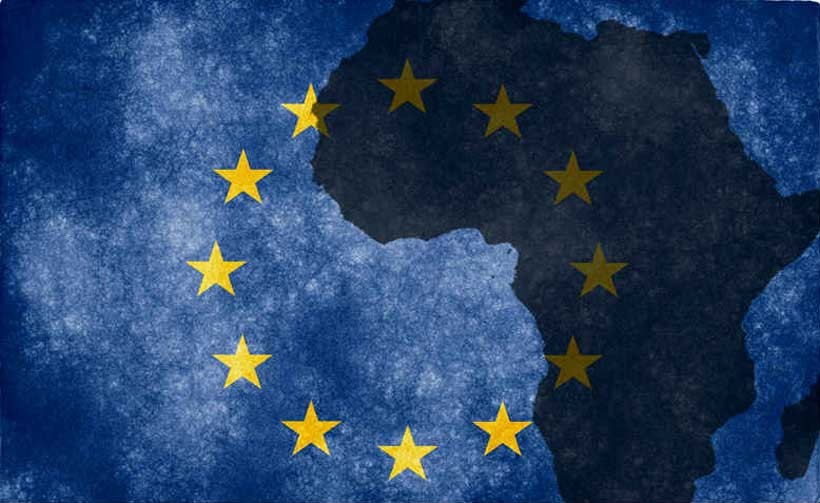COVID-19 pandemic is increasingly showing the world how much people’s lives depend on digital
technologies and global connectivity. Digital transformation is a global challenge that demand
governments and policy makers to address multiple dimensions, in particularly in the context of
foreign policy. The EU has taken some concrete steps to respond faster and in a more coherent way
to ongoing and emerging global digital challenges.
The launch of the new Global Europe instrument, worth €79.5 billion over the MFF period 2021-
2027, marks a deep change of EU development policy. Moreover, EU recent initiatives reflected in
the Digital4Development (D4D) approach as well as in the actions of the EU-AU Digital Economy Task
Force (DETF) can potentially enable the EU to be a reliable global player in the field of digital
cooperation. Nevertheless, if the EU wants to be relevant in the African continent, there are still
many issues to be addressed to create a solid, multilateral and mutually-beneficial digital
partnership with Africa.
First, it is important to clarify to what extent the EU can successfully support African countries to
address their digital development challenges. As African digital sphere is largely dominated both
technologically and geopolitically by the US and China, the role of the EU is still to be determined.
The creation of the D4D Hub is certainly an important first step. Launched in December 2020, the
D4D is an initiative that is aimed at gathering key stakeholders from EU in order to scale up
investments to boost digital transformation and promote a strategic EU engagement in international
digital partnerships in Africa. The D4D Hub was launched with the support of 12 EU member states
(Germany, France, Belgium, Estonia, Luxembourg, Finland, Lithuania, The Netherlands, Portugal,
Spain, Sweden) who promised to join the platform together with public institutions, industry, civil
society and academia.
However, the D4D can be an effective instrument only if EU member states are striving together to
promote international partnerships on digital transformation. At the moment, the D4D HUB has
been endorsed by less than half of the EU member states and many actors might be more interested
in digital cooperation with Africa only in terms of migration containment. This would certainly be a
huge risk for the EU. The EU-Africa digital partnership can be effective only if it is based on a shared
and long-term multilateral strategy underpinned by transparency, political commitment and mutual
cooperation between European and African stakeholders.
Second, lack of digital infrastructure is a huge problem that remain unsolved. Over 700 million
people in Africa live without a functional internet connection. As a consequence, many are at risk to
be excluded from digital opportunities, particularly women and vulnerable groups. It is unclear if the
EU has both the capacity and the political willingness to invest in African infrastructure. Yet, there
are many other areas in which the EU can effectively support Africa in the digital field.
Regulation and market harmonization remain the EU’s greatest areas of global expertise. Digital
Single Market (DSM) has seen a great number of successes that put the EU digital sphere at top of
the world in terms of fair market regulation and citizens’ protection. These are certainly areas in
which the digital cooperation between the EU and Africa can achieve feasible and tangible results.
For instance, the EU can provide an effective support in creating regulatory framework based on
DSM in Africa and replicate successful policies such as GDPR. At the same time, the EU policy makers
should pay more attention to the growth of small and medium-sized businesses as at the moment
the European expertise in this area is limited. For instance, the D4D Hub could be a great instrument
to learn more about African entrepreneurial digital ecosystems and support African entrepreneurs.
A better understanding of African digital ecosystem might help the EU to provide future support in
taxation as well. Africa is potentially the biggest digital market of the world and there are almost a
billion of potential new consumers of future digital services and products. While internet activity and
online presence is still lower than in any other continent, the opportunities for giant tech in the
region are huge. Therefore, it is crucial for the EU to support African countries in creating a fair and
transparent tax framework.
Lastly but most importantly, many challenges are linked to how the EU can support digital
inclusiveness in Africa. Ensuring affordability of internet and technologies for everyone will be a key
factor to measure the effectiveness of the EU-Africa digital cooperation. Therefore, it is important
that women and men benefit from digital transformation equally. Moreover, empowering women
and girls in the digital sphere, particularly in countries where social and ethnic divide is bigger, might
be an effective way to provide tangible benefits for Africans, promote European values and address
an issue that has been largely ignored by the international community.
One can claim that digital cooperation with Africa might seem a risky field in which the EU is going to
be involved. It is certainly true that without a strong political involvement the EU is at risk to lose out
to other global players operating in Africa. However, digitalisation is also a topic where both the EU
and Africa aspire to develop a stronger and mutual beneficial cooperation: there are many
opportunities to be realized and more will be created through a stronger partnership. Thus, digital
cooperation is probably the most important field in which the EU can test the effectiveness of its
global ambitions.
